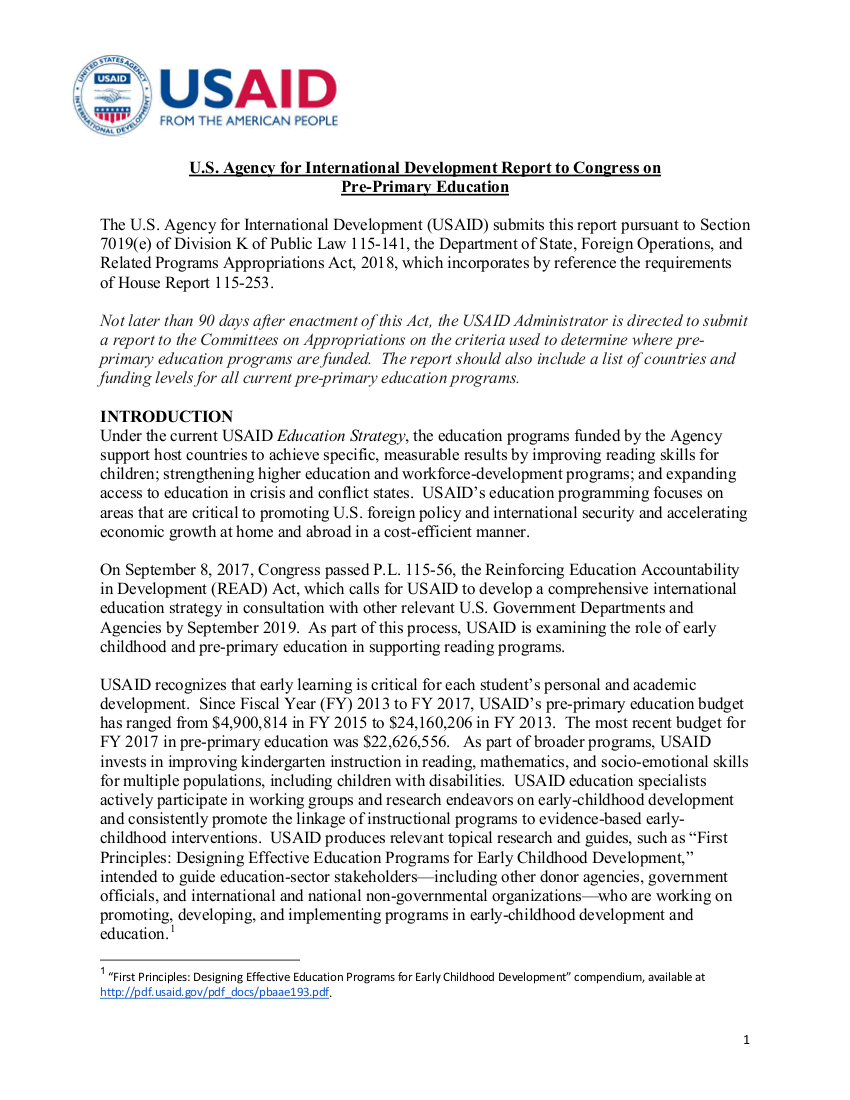Speeches Shim
The U.S. Agency for International Development (USAID) submits this report pursuant to Section 7019(e) of Division K of Public Law 115-141, the Department of State, Foreign Operations, and Related Programs Appropriations Act, 2018, which incorporates by reference the requirements of House Report 115-253.
Not later than 90 days after enactment of this Act, the USAID Administrator is directed to submit a report to the Committees on Appropriations on the criteria used to determine where preprimary education programs are funded. The report should also include a list of countries and funding levels for all current pre-primary education programs.
INTRODUCTION
Under the current USAID Education Strategy, the education programs funded by the Agency support host countries to achieve specific, measurable results by improving reading skills for children; strengthening higher education and workforce-development programs; and expanding access to education in crisis and conflict states. USAID’s education programming focuses on areas that are critical to promoting U.S. foreign policy and international security and accelerating economic growth at home and abroad in a cost-efficient manner.
On September 8, 2017, Congress passed P.L. 115-56, the Reinforcing Education Accountability in Development (READ) Act, which calls for USAID to develop a comprehensive international education strategy in consultation with other relevant U.S. Government Departments and Agencies by September 2019. As part of this process, USAID is examining the role of early childhood and pre-primary education in supporting reading programs.
USAID recognizes that early learning is critical for each student’s personal and academic development. Since Fiscal Year (FY) 2013 to FY 2017, USAID’s pre-primary education budget has ranged from $4,900,814 in FY 2015 to $24,160,206 in FY 2013. The most recent budget for FY 2017 in pre-primary education was $22,626,556. As part of broader programs, USAID invests in improving kindergarten instruction in reading, mathematics, and socio-emotional skills for multiple populations, including children with disabilities. USAID education specialists actively participate in working groups and research endeavors on early-childhood development and consistently promote the linkage of instructional programs to evidence-based early-childhood interventions. USAID produces relevant topical research and guides, such as “First Principles: Designing Effective Education Programs for Early Childhood Development,” intended to guide education-sector stakeholders—including other donor agencies, government officials, and international and national non-governmental organizations—who are working on promoting, developing, and implementing programs in early-childhood development and education.


Comment
Make a general inquiry or suggest an improvement.